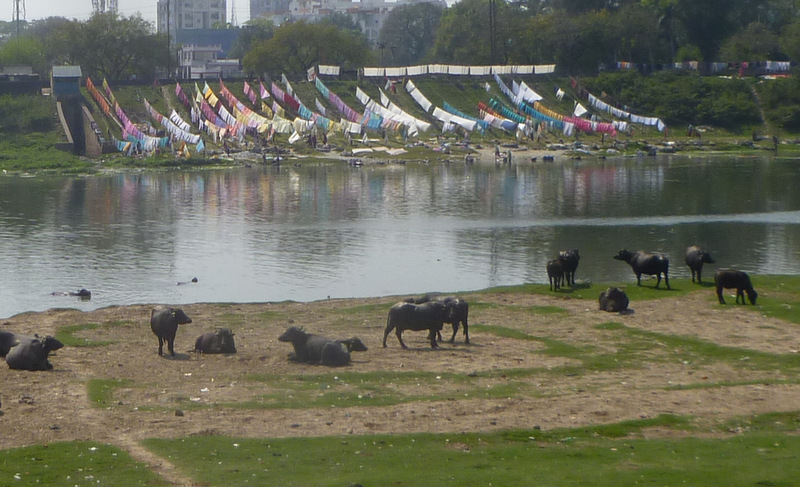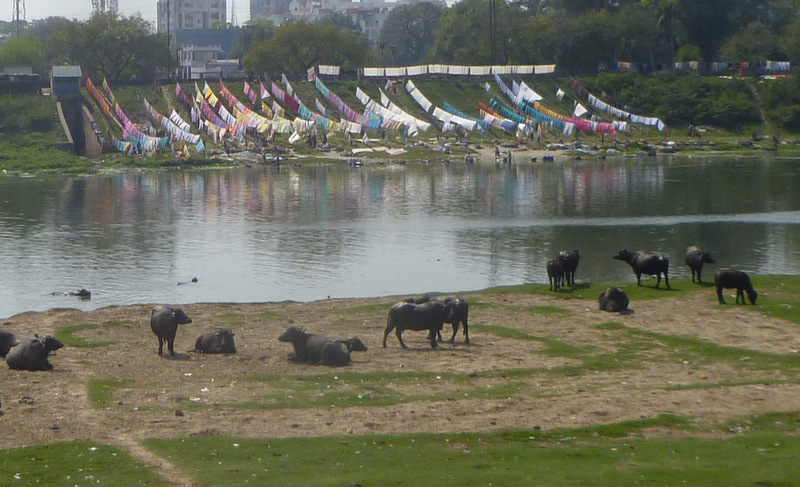More and more life all the time, actually– this week, two new babies were born in our community. Yesterday afternoon, drummers came to pound out a beat in front of one family’s house; an excited crowd gathered in the alley around their door, and the new baby’s relatives took turns dancing in the middle. That night, the other family hosted a party and gave out dinner and sweets to celebrate new life. It seems that whatever is going on in people’s lives and families, whether deaths or births or weddings or arguments or celebrations or grief, it is usually shared with others.
In Luke chapter 10, Jesus is cross-examined by an “expert in the law” who wants to know what he must do to “enter into life.” Jesus’ reply is simply to direct the man back to the words he has already read hundreds of times in the law: “Love the Lord your God with all your heart and with all your soul and with all your strength and with all your mind”; and, “Love your neighbor as yourself.” The man had intended to engage Jesus in a theological debate, so he is disappointed with this straightforward response. Flustered, he searches for a way to make things more complicated—and to relieve himself of responsibility: “Who is my neighbor?” he asks.
This morning, for the first time, this man’s question struck us as odd. These days, waiting in line for the outhouse together, sharing laundry line space, talking at the doorway and through the walls, eating together, experiencing the rain and the power outages and the festivals together, there is no way that we could ever be confused about who our neighbors are. We often fail at loving our neighbors as ourselves (particularly the ones with whom we share the closest quarters!), but our lives are so intertwined with theirs that it would be impossible for us to ask who our neighbors are. This man’s question to Jesus reveals that he was probably living in such isolation from the people—and the needs—around him to the point that he could really look around without seeing any “neighbors”. Put enough walls and busyness between you and the people around you, and you will become oblivious to the demands and joys of neighbor-hood with other human beings!
As humans, we are dynamic rather than static beings, so learning to recognize our neighbors and become neighbors to other people is not a matter of static location somewhere on the continuum between solidarity with our neighbors and isolation from them. It is a question of movement—with each decision we make, about where to live, and how to live, we can move either toward greater solidarity with others, or greater isolation. There is no set expression of what this movement will look like for each individual, as we all begin in different places (and even living in a slum does not guarantee that we will consistently choose to move toward solidarity rather than toward isolation). But the movement is the important thing.
SOLIDARITY <—————————————————————-> ISOLATION
We are learning that Jesus calls us to live life in such a way that the question of, “Who is my neighbor?” becomes irrelevant because we are already living life alongside the diverse lot of strangers, enemies, and friends whom we have recognized and accepted as our neighbors.
Who is my neighbor?


